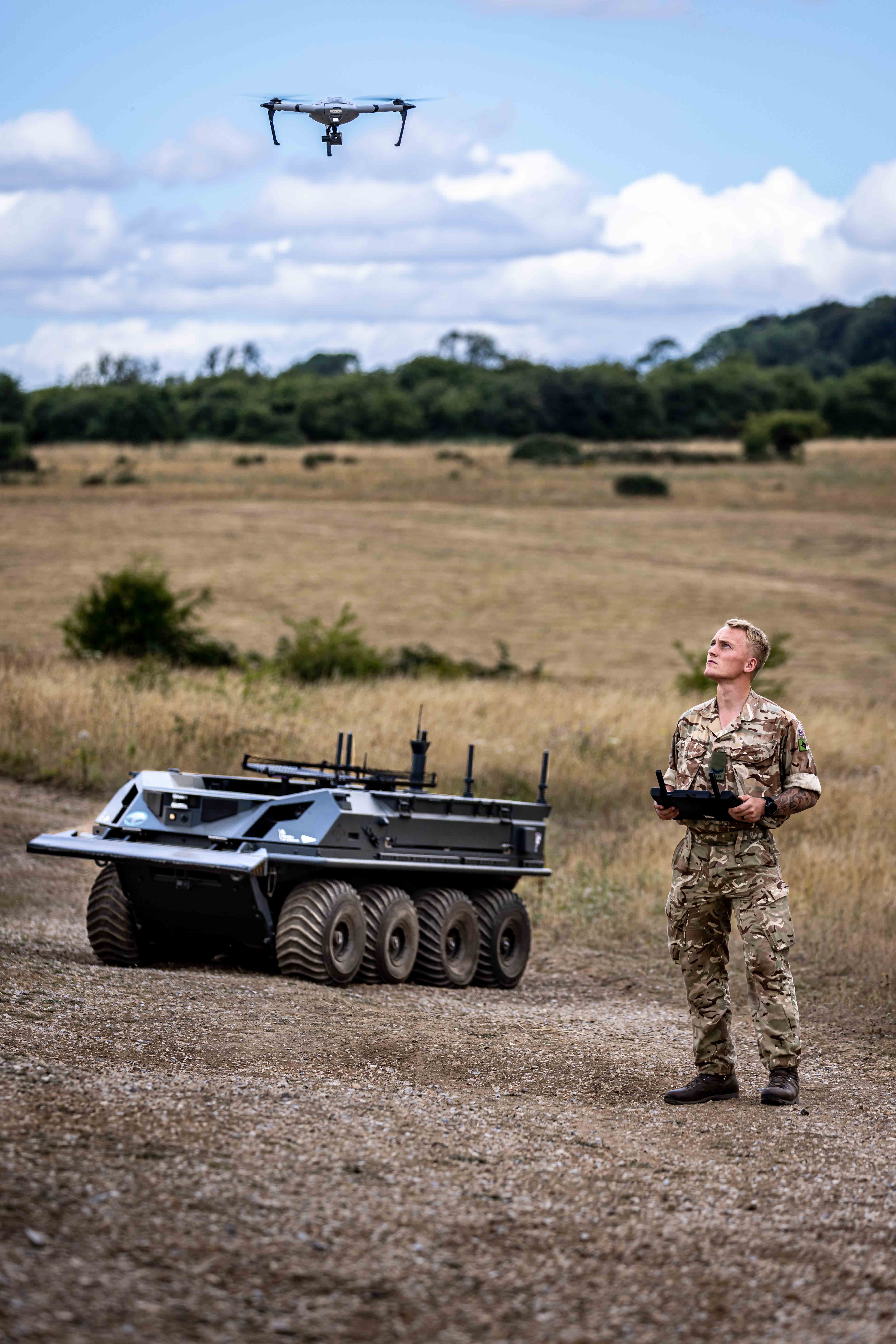
The UK’s new Defence AI Centre is now operational – officials say the new collaborative centre will “enhance Defence’s ability to harness the game-changing power of artificial intelligence to achieve strategic outcomes.”
It has already been examining work on uncrewed ground vehicles and more covert drones.
The Defence AI Centre (DAIC) has a “federated, collaborative model” the Ministry of Defence (MOD) says.
Work by its AI project teams will be split across three of its existing organisations: Defence Digital, the Defence Science and Technology Laboratory, and Defence Equipment & Support’s Future Capability Group.
Defence AI Centre "all about collaboration"
The Defence AI centre was first discussed publicly by General Sir Patrick Sanders, Commander of Strategic Command in May 2021 in a landmark speech in which he said the UK was being confronted by a “technological tsunami” of threats among which “the one ring to rule them all, is Artificial Intelligence…”
In that same speech General Sanders said MOD would “adopt and exploit AI for defence at scale”, adding that the source of military advantage lies ever less in hardware platforms, and increasingly in the ability to “sense, understand and orchestrate… sensor networks, the data, the PED [processing, exploitation, and dissemination of intelligence] and the effectors: kinetic or non-kinetic” across a given kill-chain.
MOD in May this year “brought together teams from across the DAIC for a ‘Show and Tell’ session, showcasing a range of AI projects currently being undertaken across Defence” Defence Digital noted in a blog in late July.
Follow The Stack on LinkedIn

It added that “in the session we discussed using AI to develop uncrewed ground vehicles; working with industry partners to apply natural language programming techniques to Defence-specific problems; and exploiting AI to allow unmanned aerial vehicles to navigate more covertly towards target locations.”
Minds in MOD are not unattuned to some of the procurement challenges that have arisen in this space. In a statement likely to have been appreciated by private sector partners in the tightly managed markets for which HMG wants to retain sovereign capabilities the government will need to “incentivise industrial partners by refreshing capabilities constantly [and] develop strategic partnerships including with SMEs,” General Sanders added last summer, noting “The PUS [under-secretary David Williams] is determined to unlock this and you can press him on it in the final session.”
This increased focus on AI and other technologies, along with much faster innovation will require a real cultural shift across defence, General Sir Patrick Sanders, Commander of Strategic Command concluded.
“We are still largely and recognisably a tri-service organisation. Coordination across the services is still more of an afterthought than a reflex… Our approach to managing rare talent and skills that are needed across domains is still stove-piped, though our approach to managing cyber talent offers a model for how to change this.”
